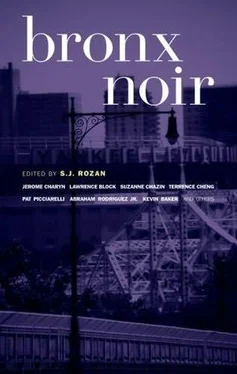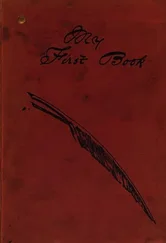Gold mountain
by Terrence Cheng
Lehman College
He knocked on the door and waited. A voice called out in English. Usually it was a white man, older, wearing glasses or with a beard or both. Usually the older white man looked into the bag, then at the bill, then went through his wallet for money. Usually the tip was a dollar or two, sometimes more. This did not happen often and he did not expect it.
He heard footsteps and then the door opened.
He stared at the man as he fumbled with his wallet; he was not white and not older, but Chinese — not Japanese or Korean, he could tell right away from the pallor of his skin, the shape of his eyes and nose and mouth. In his mid-thirties, he thought, he wore glasses and a blazer, a pair of dark pressed pants, and shined shoes. A few small moles dotting his right cheek, otherwise his skin was light, his hair longish and wavy, swept back as if blown by wind.
The man gave him a twenty and said, “Keep it”; he could not speak English, but this phrase he had come to understand. He nodded, turned to go. Then he heard the man say in his own dialect, “You are from Fuzhou?”
He stopped, did not turn back right away. When he did he said in his own language, “Yes. Are you?”
“No,” the man said, “My family is from the north. But I’ve traveled.” He paused, then said, “Is my pronunciation okay?”
“Yes, very good.”
“I’m a professor here. I teach history.”
“Right,” he said. “Thank you.” He turned and went downstairs and out to the fence where he had chained his bicycle. He looked at his watch. He had two more deliveries across campus, had to hurry or else they would call the restaurant and complain.
The orders coming from the college had picked up since the end of August. Now there were people everywhere — the faces black, brown, white, most of them young, some older, even old. Many pensive, serious, many jubilant and smiling. There were Asian faces as well, but only a few, and he did not stare at them too long or try to make eye contact, did not want to seem conspicuous. Most of the buildings were gray and blocky, others weather-blasted with regal columns and stone carved façades. He liked riding by the baseball field, watching people jog along the gravel track or playing ball in the midst of all that green.
The rest of the day he could not stop thinking of the professor who had given him the good tip and the chance to speak in his own dialect, and not Cantonese (to the other delivery men) or Mandarin (to his boss). On sight he had known the professor was Mandarin, northern Chinese, but he was speaking Fukienese and so he had to ask. Maybe his father had been from Fujian province, or his mother. He wondered why and how much traveling the professor had done to acquire a dialect so different from his native one, how he too had wound up in a place like this.
He rode and kept his eyes roving. Too many times during the summer he had almost been clipped by a speeding truck or car while enjoying the warmth of the sun on his back or a cooling breeze in his face. For this he was teased by the other delivery men.
“Pay attention or you’ll get run down like a rat,” said Fong. He was in his forties but already quite bald, one front tooth capped in gold, a cigarette perpetually dangling from his lips. He had been in the U.S. for over ten years and liked to brag that he could navigate the streets of the neighborhood with his eyes closed. The other delivery man was Wai-Ling, twenty-one or twenty-two, a few years younger than himself, small and quiet with bushy eyebrows and beady eyes. He laughed at whatever Fong said.
Not long after he had arrived, the boss, Mr. Liu, gave him the college campus and neighboring streets as his delivery area. “Can you handle that without getting killed?” Mr. Liu had asked him. He was a wiry old man, originally from Beijing, who ran the restaurant with his small but angry wife. They gave him a map, which he folded and put in his back pocket as Fong and Wai-Ling laughed.
“Like a schoolboy,” Fong said. “Don’t get lost!”
When a delivery was wrong or late he would be yelled at and sometimes cursed at — he recognized the loud sharp tones, fiaring in the eyes. Times like this he was glad he did not know what was said. He would just hand over the delivery and a few times the food was taken with a door slammed in his face, leaving him empty-handed. He thought Mr. Liu would scream at him for this, but he didn’t. “It happens sometimes,” his boss said. “Better not to make enemies.” He thought Mr. Liu was right, but in the end he knew that none of it would matter if no one knew who he was, which was why he had told no one his real name.
After his last delivery of the day he returned the bicycle to the restaurant and counted out with Mrs. Liu. His tips for the day had been poor, except for the professor who had given him almost four dollars. He left Fong and Wai-Ling smoking out in front of the restaurant. As he walked away he heard Fong shout at him, “Don’t get lost, eh?” The same joke every day; he heard Wai-Ling snicker and laugh.
He lived close to the restaurant in a stone and brick building, a steel gate in front trimmed with razor wire. His apartment was small: an open kitchen, a living room, and a bathroom. He had found a mattress on the street and scrubbed it clean and now it lay in the corner covered with a blanket. The black-and-white television sat on a plastic crate, and there was one rickety wood chair against the wall that he never sat in but used as a small table instead. He had his dinner in a bag taken from the restaurant — leftover rice and greasy noodles, a slop of chicken, and overcooked vegetables in brown sauce. He set it on the chair and dug in; he didn’t like the restaurant’s food, but it was easier than cooking and still the closest thing he could get that reminded him of home. Since he had come to this place his pants and shirts now fit more snugly, and there was a thickness growing around his face. Maybe it was the food, or maybe the place itself was changing him. He thought his parents, if they had been alive, would not recognize him. And maybe this was part of the luxury in coming to the Gold Mountain, where food was hearty and plentiful enough to fatten up even a skinny farm boy like himself.
He turned on the television and watched the baseball game. The score was six to two, and only from the body language of the players could he figure out who was winning. When the score became ten to two he turned it off.
He went to the closet and dug out the small suitcase hidden at the bottom beneath empty boxes and rags. He looked out the window, as if someone might be spying on him, then turned back to the suitcase and popped it open. He stared for a moment, then dug his hands down through the four thick layers of wrapped and bundled American bills. He did not know the faces and could not read the words on the bills, but he knew the numbers: 100, 50, 20. When he had first opened the suitcase, months ago, the bills had all been sopping wet, but now they were wrinkled and dry, loose inside their bands. He had never counted it all to the dollar, bill by bill, but he had counted the bundles and estimated: close to a million U.S. More than his entire village back home could have earned in a lifetime.
He closed the suitcase and shoved it back in beneath the junk and waste. Then he flopped down on the mattress with the window open and slept with the sound of the city rumbling in his ear.
A few days later he knocked on the office door again, looked at the order ticket as he waited: beef with eggplant, brown rice, egg drop soup, can of soda. He did not blame the professor for ordering this muck; the restaurant was one of only a few in the neighborhood that made deliveries.
Читать дальше












